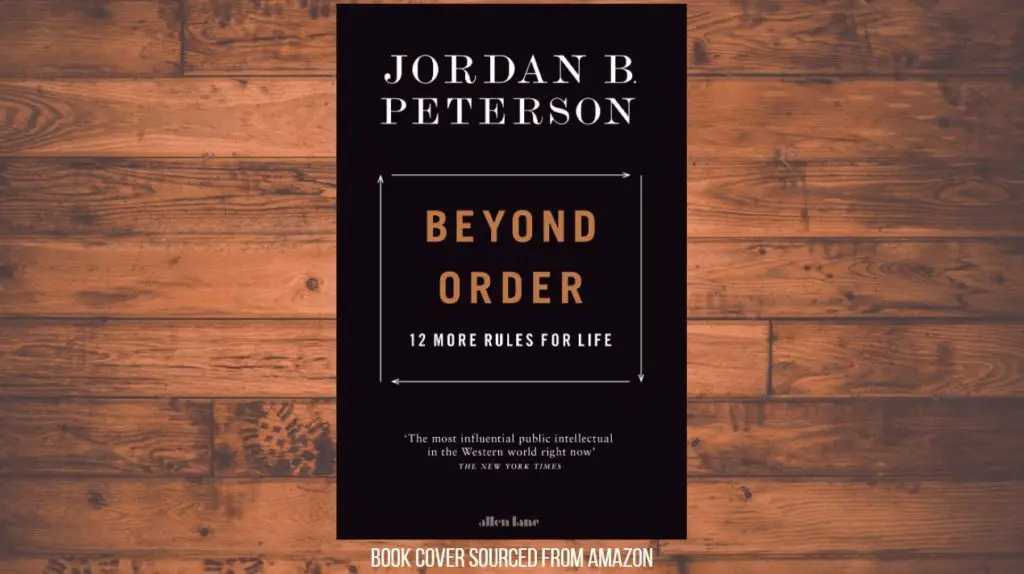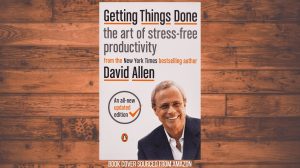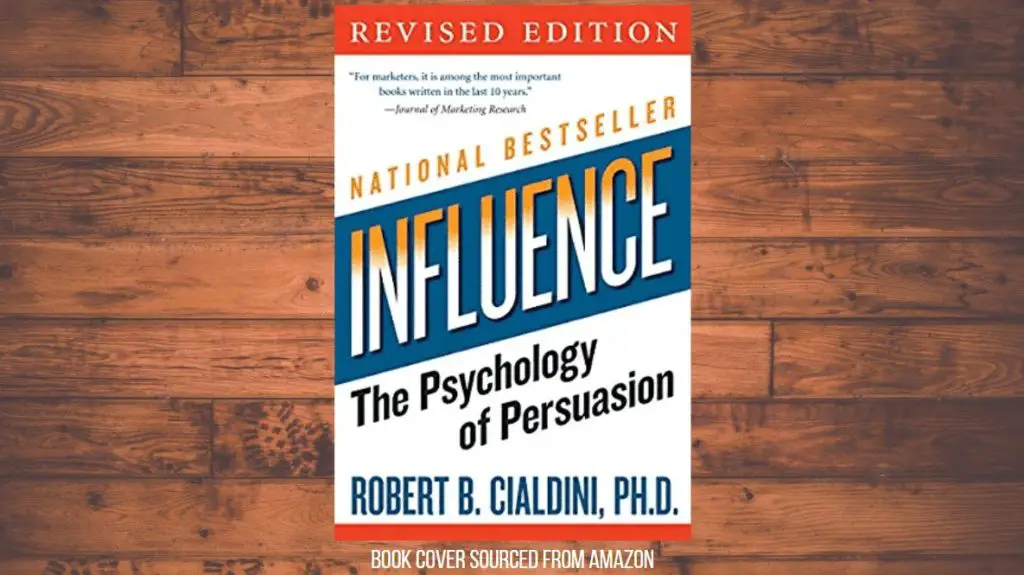This post may contain affiliate links, which means I’ll receive a commission if you purchase through my links, at no extra cost to you. Please read full disclosure for more information.
ABOUT
- Title: Beyond Order
- Sub-title: 12 More Rules For Life
- Author: Jordan B. Peterson
- About the author: Jordan Peterson is a Canadian clinical psychologist, cultural critic, and professor of psychology at the University of Toronto. His main areas of study are the psychology of religious and ideological belief, and the assessment and improvement of personality and performance. Dr. Peterson skyrocketed in popularity after he began uploading his lectures on YouTube in 2013. In addition to Beyond Order, he authored 12 Rules For Life in 2018 and Maps of Meaning in 1999.
- Pages:
- Published:
- Link to book
HIGH-LEVEL SUMMARY
Beyond Order helps the reader break out of rigid order and into the unknown. Order is explored territory and comes with its own flaws. Author Jordan Peterson warns that too much security can be dangerous.
When you move beyond order, and into chaos, you are venturing into the unknown and learning from it; learning how to deal with it.
The rules are told based on Peterson’s clinical experience as a psychologist, and from his own personal experience. A result of implementing these rules will be the development of the reader. The reader will find the optimal balance between order and chaos and integrate successfully into the world, its structures, and the relationships it offers.
RECOMMENDATION
Beyond Order is a great follow-up to Peterson’s first book 12 Rules For Life.
It’s another deep read that will require thought and effort to get through. But the guidance you’ll receive will help you make your way through modern life, balancing effectively between order and chaos.
TOP TAKEAWAYS
1. If order is where what we want makes itself known—when we act in accordance with our hard-won wisdom—chaos is where what we do not expect or have remained blind to leaps forward from the potential that surrounds us.
2. In my previous book, 12 Rules for Life: An Antidote to Chaos, I focused more on how the consequences of too much chaos might be remediated. Unlike my previous book, Beyond Order explores as its overarching theme how the dangers of too much security and control might be profitably avoided.
Rule I Do Not Carelessly Denigrate Social Institutions or Creative Achievement
3. Simply put: We outsource the problem of sanity. People remain mentally healthy not merely because of the integrity of their own minds, but because they are constantly being reminded how to think, act, and speak by those around them. If you begin to deviate from the straight and narrow path—if you begin to act improperly—people will react to your errors before they become too great, and cajole, laugh, tap, and criticize you back into place.
4. It is useful to take your place at the bottom of a hierarchy. It can aid in the development of gratitude and humility. It is necessary and helpful to be, and in some ways to remain, a beginner. No one unwilling to be a foolish beginner can learn. Today’s beginner is tomorrow’s master.
Rule II Imagine Who You Could Be, And Then Aim Single-Mindedly At That
5. Rule II analyzes a centuries-old alchemical image, relying on several stories—ancient and modern—to illuminate the nature and development of the integrated human personality.
6. You are not only something that is. You are something that is becoming—and the potential extent of that becoming also transcends your understanding. But it can also be hidden by an unwillingness to take full advantage of the opportunities that life offers—abetted by regrettable errors of all sorts, including failures of discipline, faith, imagination, and commitment.
7. You need to map your path. You need to know where you were, so that you do not repeat the mistakes of the past. You need to know where you are, or you will not be able to draw a line from your starting point to your destination.
Rule III Do Not Hide Unwanted Things In The Fog
8. Rule III warns of the dangers of avoiding the information (vital to the continual rejuvenation of the psyche) signaled by the emergence of negative emotions such as pain, anxiety, and fear.
9. Second, it is very common to allow so-called minor irritations (which are not minor, as I said, if they happen constantly) to continue for years without comment or resolution. Here is the problem: Collect a hundred, or a thousand, of those, and your life is miserable and your marriage doomed. Life is what repeats, and it is worth getting what repeats right.
10. The fog that hides is the refusal to notice—to attend to—emotions and motivational states as they arise, and the refusal to communicate them both to yourself and to the people who are close to you. Your strategy, under such conditions? Show your disappointment whenever someone close to you makes you unhappy;
11. If you pile up enough junk in your closet, one day, when you are least prepared, the door will spring open, and all of what has been packed inside, growing inexorably in the darkness, will bury you, and you may not have enough time or energy left in your life to confront it, sort through it, keep what you need, and discard the rest.
Rule IV Notice That Opportunity Lurks Where Responsibility Has Been Abdicated
12. Rule IV argues that the meaning that sustains people through difficult times is to be found not so much in happiness, which is fleeting, but in the voluntary adoption of mature responsibility for the self and others.
13. Make Yourself Invaluable. if you are a wise and attentive person—you might still notice that your unproductive coworkers are leaving a plethora of valuable tasks undone. If you want to become invaluable in a workplace—in any community—just do the useful things no one else is doing.
14. We are well advised to take on challenges at precisely the rate that engages and compels alertness, and forces the development of courage, skill, and talent, and to avoid foolhardy confrontation with that which lies beyond current comprehension.
15. However, I do not believe you should pursue happiness. What might serve as a more sophisticated alternative to happiness? The answer is that people experience positive emotion in relationship to the pursuit of a valuable goal.
Rule V Do Not Do What You Hate
16. Rule V uses a single example, drawn from my experience as a clinical psychologist, to illustrate the personal and social necessity of attending to the dictates of conscience.
17. Someone assigned a pointless or even counterproductive task will deflate, if they have any sense, and find within themselves very little motivation to carry out the assignment.
18. When we are called upon to do things that we find hateful and stupid, we are simultaneously forced to act contrary to the structure of values motivating us to move forward stalwartly and protecting us from dissolution into confusion and terror.
Rule VI Abandon Ideology
19. Rule VI describes the danger of attributing the cause of complex individual and social problems to single variables such as sex, class, or power.
20. Since the ideologue can place him or herself on the morally correct side of the equation without the genuine effort necessary to do so validly, it is much easier and more immediately gratifying to reduce the problem to something simple and accompany it with an evildoer, who can then be morally opposed.
21. The moral of the story? Beware of intellectuals who make a monotheism out of their theories of motivation. Beware, in more technical terms, of blanket univariate (single variable) causes for diverse, complex problems.
Rule VII Work As Hard As You Possibly Can On At Least One Thing And See What Happens
22. Rule VII outlines the crucial relationship between disciplined striving in a single direction and forging of the individual character capable of resilience in the face of adversity.
23. When coal is subjected to intense heat and pressure, far below the Earth’s surface, its atoms rearrange themselves into the perfect repeating crystalline alignment characterizing a diamond. Heat and pressure transform the base matter of common coal into the crystalline perfection and rare value of the diamond.
24. The same can be said of a person. We know that the multiple forces operating in the human soul are often not aligned with one another.
25. Without clear, well-defined, and noncontradictory goals, the sense of positive engagement that makes life worthwhile is very difficult to obtain. Clear goals limit and simplify the world, as well, reducing uncertainty, anxiety, shame, and the self-devouring physiological forces unleashed by stress.
Rule VIII Try To Make One Room In Your Home As Beautiful As Possible
26. Rule VIII focuses on the vital importance of aesthetic experience as a guide to what is true, good, and sustaining in the human world of experience.
27. Art is exploration. Artists train people to see. It is very hard to perceive the world, and we are so fortunate to have geniuses to teach us how to do it, to reconnect us with what we have lost, and to enlighten us to the world.
Rule IX If Old Memories Still Upset You, Write Them Down Carefully And Completely
28. Rule IX makes the case that past experiences, whose current recall remains laden with pain and fear, can be stripped of their horror by voluntary verbal exploration and reconsideration.
29. Everyone seems to know this. We are universally tormented by our consciences for what we know we should have done yet did not do. We are tormented equally by what we did but know we should not have done.
30. It is our destiny to transform chaos into order. If the past has not been ordered, the chaos it still constitutes haunts us. There is information—vital information—resting in the memories that affect us negatively.
Rule X Plan And Work Diligently To Maintain The Romance In Your Relationship
31. Rule X notes the importance of explicit negotiation to maintenance of the good will, mutual regard, and heartfelt cooperation without which no true romance can be sustained. Do not be naive, and do not expect the beauty of love to maintain itself without all-out effort on your part.
32. Your failure to specify your desires means your unfortunate lover will have to guess what would please and displease you, and is likely to be punished in some manner for getting it wrong.
33. The next thing you have to do—I know this from both my clinical and marital experience (thirty years of each)—is actually talk to your partner for about ninety minutes a week, purely about practical and personal matters.
34. What do you like? What does she like? And are you going to let each other know? Are you going to risk practicing badly? Are you going to learn some new tricks, even if you feel like a fool when you first try?
Rule XI Do Not Allow Yourself To Become Resentful, Deceitful, Or Arrogant
35. Rule XI opens by describing the world of human experience in a manner that explains what motivates three common but direly dangerous patterns of psychological response, delineates the catastrophic consequences of falling prey to any or all of them, and lays out an alternative route.
36. In fact, I think it is reasonable to posit that it is often the people who have had too easy a time—who have been pampered and elevated falsely in their self-esteem—who adopt the role of victim and the mien of resentment. You can encounter people, contrarily, who have been hurt virtually beyond all hope of repair who are not resentful and who would never deign to present themselves as victims.
37. If you confront the suffering and malevolence, and if you do that truthfully and courageously, you are stronger, your family is stronger, and the world is a better place. The alternative is resentment, and that makes everything worse.
Rule XII Be Grateful In Spite Of Your Suffering
38. Rule XII makes the case that thankfulness in the face of the inevitable tragedies of life should be regarded as a primary manifestation of the admirable moral courage required to continue our difficult march uphill.
39. However, even though I regard the inevitability of suffering and its exaggeration by malevolence as unshakable existential truths, I believe even more deeply that people have the ability to transcend their suffering, psychologically and practically, and to constrain their own malevolence, as well as the evils that characterize the social and the natural worlds.
40. You cannot properly appreciate what you have unless you have some sense not only of how terrible things could be, but of how terrible it is likely for things to be, given how easy it is for things to be so. It may be necessary to encounter the darkness before you can see the light.
41. If you fail to understand evil, then you have laid yourself bare to it. If we want to have any hope of dealing with the existence of evil, and working toward its minimization, we must understand these sorts of impulses.
WHAT I LIKED
- Writing is just as thoughtful as Peterson’s first book
- Explains why too much structure can be dangerous
- Stories and lessons are from personal experience and experience as a psychologist
BENEFITS TO YOUR LIFE AND CAREER
- Learn to successfully integrate into the world
- Find direction, meaning, and purpose
- Learn the importance of why you shouldn’t do things you hate and why you should speak up
RESOURCES
Beyond Order can be found on Amazon at this link here if you are interested in reading.



